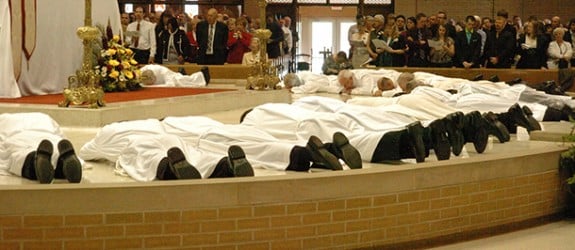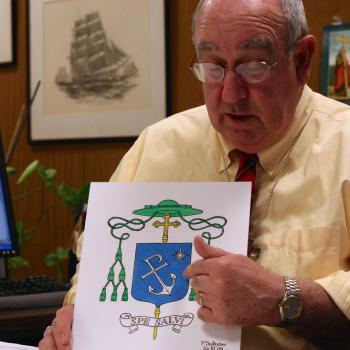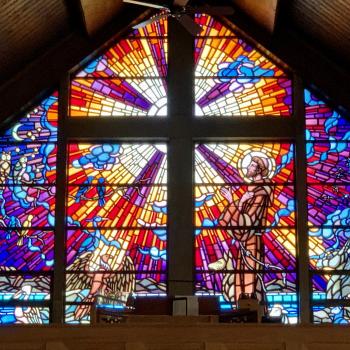A deacon sent me the following email:
A priest I respect greatly recently said something that I was surprised by and honestly think that he was wrong…
I had always been told and was ordained believing that when a Deacon is validly ordained to the Sacrament of Holy Orders, and becomes a member of the clergy, that there is an ontological change in him.
According to my priest friend that doesn’t happen to deacons it only happens to priests, and bishops.
Where to begin?
Well, the catechism is a good place to start. The priest might want to brush up on his reading, particularly of paragraph 1570:
Deacons share in Christ’s mission and grace in a special way. The sacrament of Holy Orders marks them with an imprint (“character”) which cannot be removed and which configures them to Christ, who made himself the “deacon” or servant of all.
I turned to someone a lot smarter than me for further insight. And Deacon Bill Ditewig wrote the following in response on his blog, quoting from the Norms for the Formation of Deacons:
Insofar as it is a grade of holy orders, the diaconate imprints a character and communicates a specific sacramental grace. The diaconal character is the configurative and distinguishing sign indelibly impressed in the soul, which configures the one ordained to Christ, who made himself the deacon or servant of all. It brings with it a specific sacramental grace, which is strength, vigor specialis, a gift for living the new reality wrought by the sacrament. “With regard to deacons, ‘strengthened by sacramental grace they are dedicated to the People of God, in conjunction with the bishop and his body of priests, in the service (diakonia) of the liturgy, of the Gospel and of works of charity’”.(11) Just as in all sacraments which imprint character, grace has a permanent virtuality [The Latin original has: Sicut in omnibus sacramentis characterem imprimentibus, gratia permanentem virtualem vim continet]. It flowers again and again in the same measure in which it is received and accepted again and again in faith.
E. In the exercise of their power, deacons, since they share in a lower grade of ecclesiastical ministry, necessarily depend on the Bishops, who have the fullness of the sacrament of orders. In addition, they are placed in a special relationship with the priests, in communion with whom they are called to serve the People of God.
Bill concludes:
The bottom line remains:
Deacons are ordained, and are permanently changed in the core of their being by that ordination (what we used to call in days gone by as “ontologically changed”). We are always and everywhere full-time ministers, as St. John Paul II so passionately proclaimed, even when that ministry occurs outside the normal institutional structures of the Church. During those same catecheses in 1993, John Paul II also reminded people that “a deeply felt need in the decision to re-establish the permanent diaconate was and is that of greater and more direct presence of Church ministers in the various spheres of the family, work, school, etc., in addition to existing pastoral structures.” The diaconate is a sacrament and a proper vocation. It is perhaps also a useful reminder to many of our sisters and brothers that we are all gifted with many “proper vocations” — calls from God! — in our lifetimes. Our baptisms themselves constitute our primal vocation, before all others, for example! Some of us are called to religious life, some are called to matrimony, some are called to Orders, and some of us are called to several of these at the same time! Our God is a most generous God, and attempts to characterize one vocation over against another is to deny that divine generosity and to misunderstand the nature of vocation in the first place.
There’s much more. Read it all.












